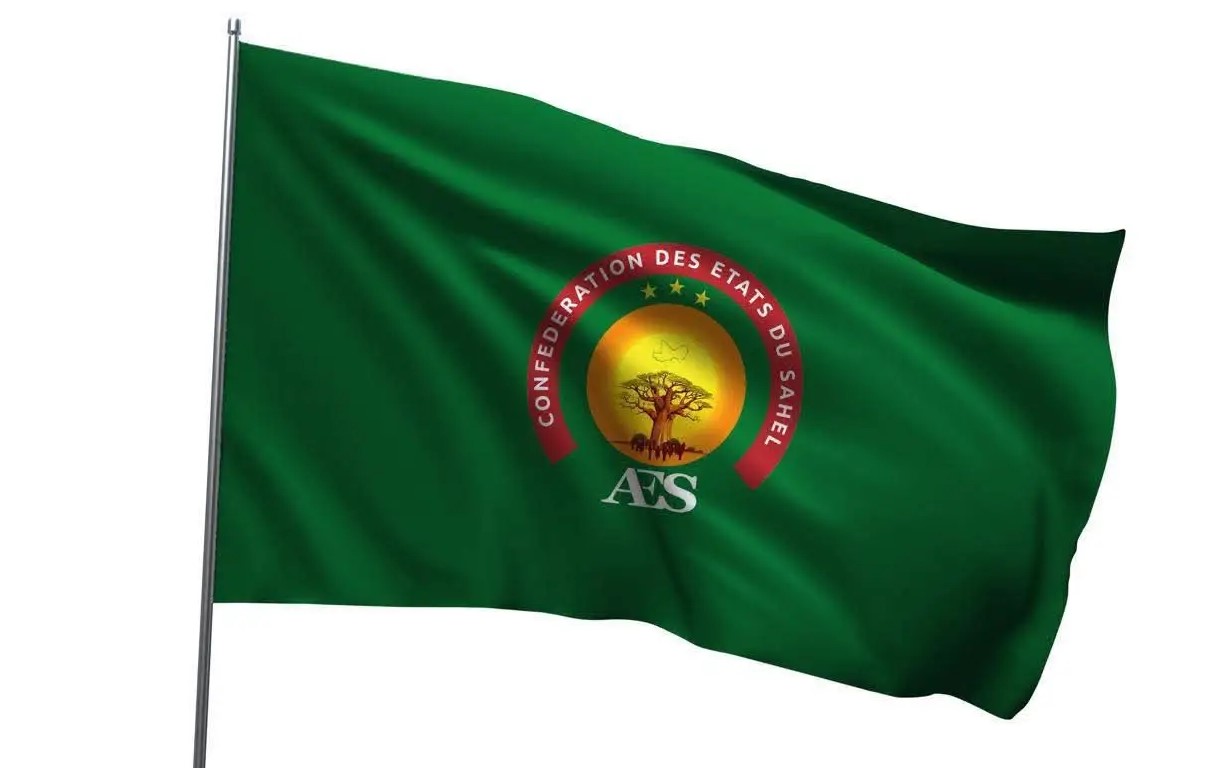Akinwunmi Adesina, the outgoing President of the African Development Bank (AfDB), reflected on his ten years of leadership, highlighting the significant financial growth and impact achieved by the institution.
Speaking at the President’s Media Welcome Breakfast in Abidjan, Côte d’Ivoire, during the ongoing AfDB Annual Meetings, Adesina proudly stated that he “drove the multilateral institution’s capital from $93 billion in 2015 to $325 billion, an unprecedented leap by all standards.” This increase represents a remarkable expansion of the bank’s financial capacity under his tenure.
Impact of the High 5s Development Strategy
Adesina, the first Nigerian to lead the Bank, also underscored the widespread impact of the AfDB’s key development strategy, the High 5s. He noted that this framework has directly improved the lives of “565 million lives across the continent, with major gains in healthcare, food security, transport, electricity, and water access.”
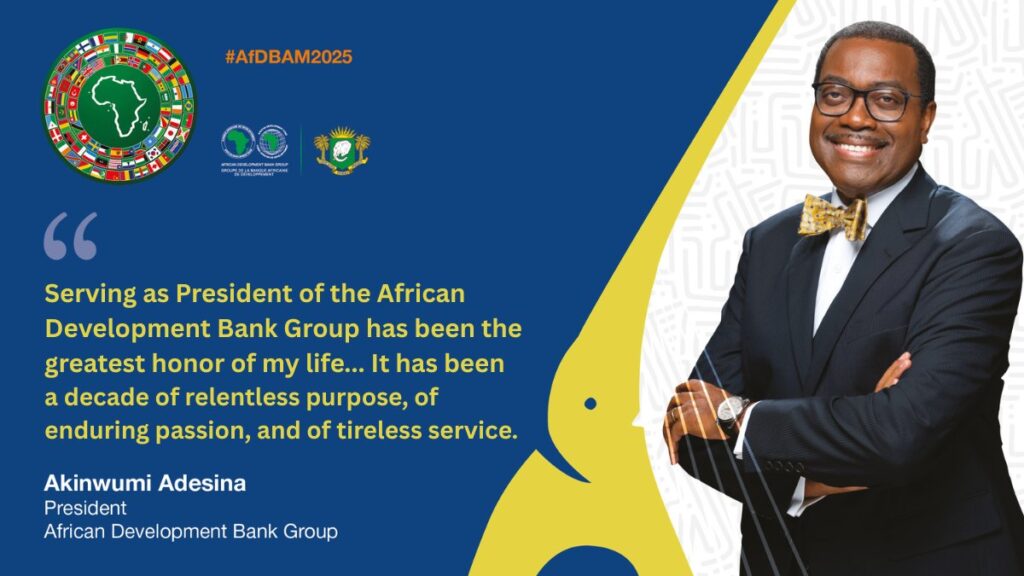
Specifically, he claimed that “128 million people now have access to improved health services; 121 million people now have access to improved transport; 104 million people are now food secure; 63 million people now have access to potable water; 34 million people now have access to improved sanitation and 28 million people now have access to electricity.”
Furthermore, Adesina pointed to the Mission 300 Energy Summit, a joint initiative with the World Bank and other partners, which aims to provide electricity to an additional “300 million Africans by 2030.” He asserted that “These are not just figures. They are futures. They are hopes realised.”
Responding to Global Food Crisis
Adesina, once Nigeria’s agriculture minister also recounted the AfDB’s swift response to the disruption of global food systems caused by the russia-ukraine-war/" target="_blank" rel="noopener noreferrer">Russia-Ukraine war. He explained that the Bank implemented a ₦697.5 billion ($1.5 billion) Emergency Food Production Facility, which enabled “13 million farmers across 29 countries to access seeds and fertilisers.”
This intervention resulted in the production of “44 million metric tons of food, with 116% above target worth $17.3 billion.”
Advice for the Incoming President
Looking ahead to the leadership transition, the outgoing president urged his successor “to build on the institution’s legacy, stand firm for Africa’s interests on the global stage, and steer clear of superficial, ineffective initiatives.”
He emphatically stated, “The responsibility of that leader is to build on the past, to look far into the future, and to find within themselves what the courage it takes to stand up for Africa’s interest… We must never follow. We must lead.”
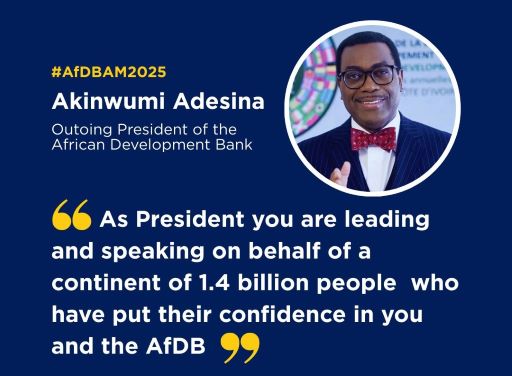
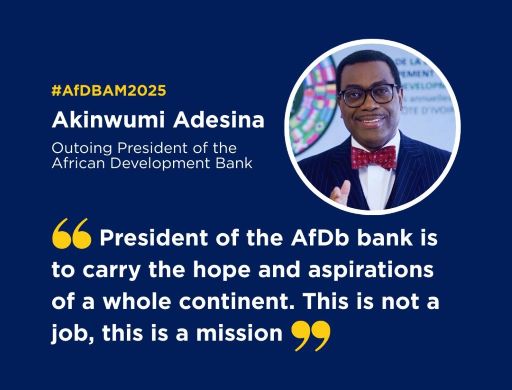
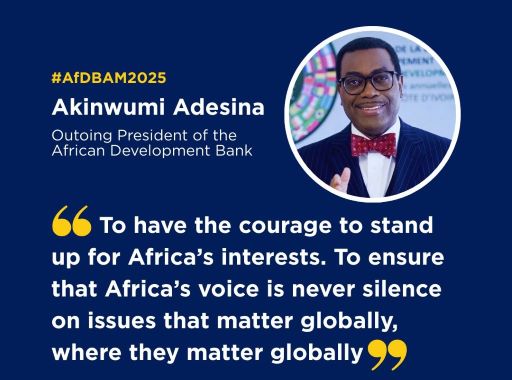
He also cautioned that “Africa does not need Mickey Mouse projects from the Mickey Mouses,” and advised the incoming president that the role requires “vision, leadership, guidance, direction, and boldness to defend the positions you believe are in the best interest of a continent.”
Then concluded by saying, “This is not a job that you want to be popular and make friends. It’s a position where you have to confront certain ideas and certain philosophies that are not necessarily going to advance Africa’s interests. So please, if you don’t have the backbone to do so, don’t take this position.”
Challenges Ahead: US Funding and Leadership Election
The AfDB is currently facing potential headwinds due to proposed funding cuts from the United States government. Reports indicate that the Trump administration intends to cut ₦257.175 billion ($555 million) in funding to the AfDB and its African Development Fund, which provides affordable financing to poorer African nations.
The election for the next AfDB President is scheduled for this Thursday. To win, a candidate must secure at least 50.01% of the votes from the 54 African member states and, in a second vote, a similar majority from all 81 members, including non-African countries. Five candidates from South Africa, Senegal, Zambia, Chad, and Mauritania are competing to succeed Adesina, who will leave office in September after serving two five-year terms.
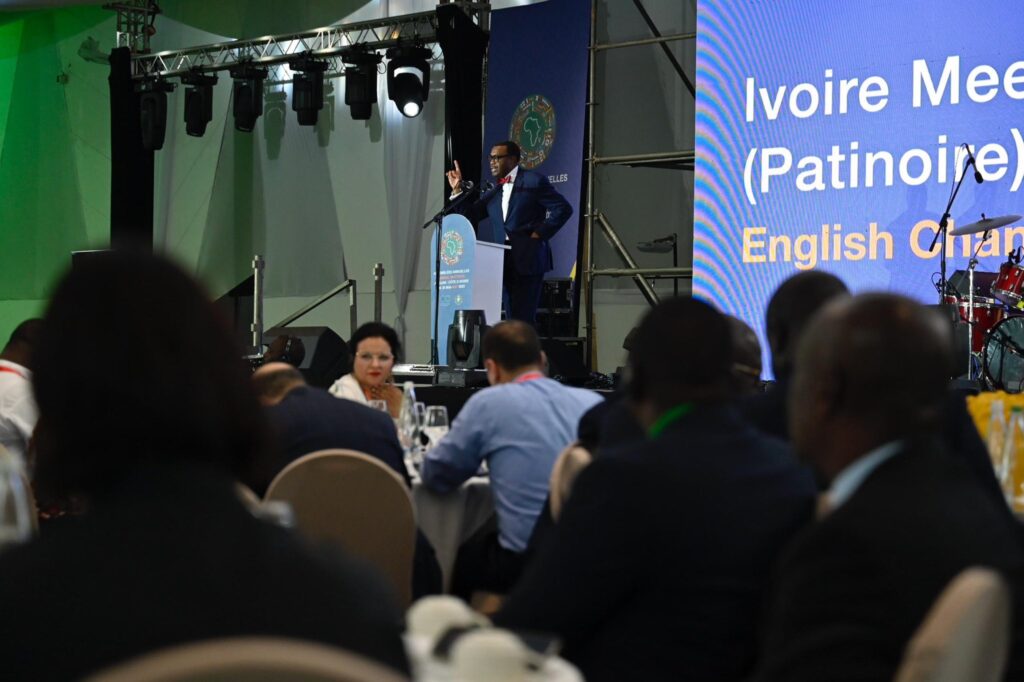
The annual meeting in Abidjan is a significant gathering for African heads of state and finance officials as many heavily indebted nations seek new funding sources for their development projects. The AfDB, with a capital of ₦147.54 trillion ($318 billion), is owned by 54 African countries and G7 nations, with Nigeria being the largest shareholder.
The next replenishment of the African Development Fund, aiming for ₦11.575 trillion ($25 billion), is planned for November. The incoming president will need to address the potential US funding cuts and explore alternative funding sources from non-regional members like China and Gulf states, or potentially seek increased contributions from African member nations.
Future Priorities and Domestic Resource Mobilization
Looking ahead, the AfDB will prioritize enhancing electricity connections, increasing food production, promoting industrialization, fostering economic integration across the continent, and improving the living standards of Africans over the next decade.
Senegal’s Amadou Hott, a contender for the presidency, has suggested that Africa should tap into its significant domestic private capital to finance development and reduce reliance on expensive international loans. He noted that African individuals hold approximately ₦1.16 quadrillion ($2.5 trillion) in assets, with an additional ₦926.4 trillion ($2 trillion) managed by pension funds, sovereign wealth funds, and insurers.
Hott believes that “The real breakthrough will come when we unlock our own ₦2.08 quadrillion ($4.5 trillion) in domestic savings and investment capacity.” He also advocates for the creation of an African credit rating agency to provide a more balanced assessment of sovereign borrowers in the region, potentially leading to more favorable lending terms.
Hott pointed out that “African countries with the same credit ratings as peers outside the continent often face borrowing costs that are up to 400 basis points higher,” and that “We should work on reducing borrowing costs for Africa.” Strengthening local currency lending is another key area, which Hott believes would “dramatically reduce Africa’s debt vulnerability and improve access to finance.”
Rate, Like 👍, Comment, share this article and Follow us on our social media handles.





